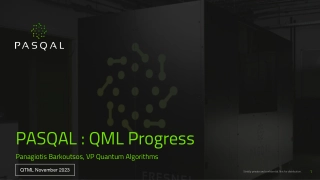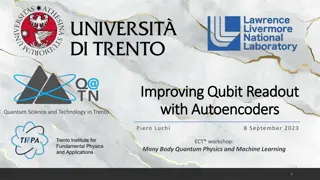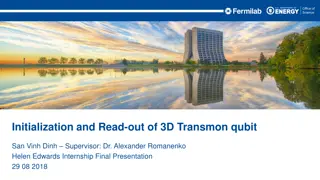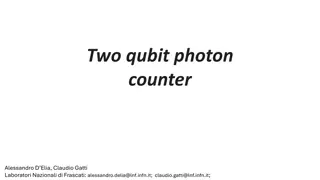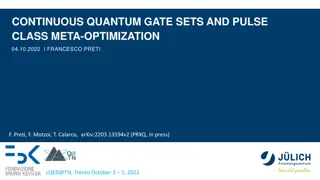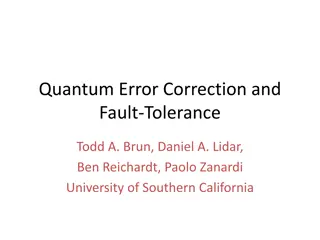PASQAL: QML Progress Panagiotis Barkoutsos, VP Quantum Algorithms
Discover the latest progress of PASQAL Quantum as Panagiotis Barkoutsos, VP Quantum Algorithms, presents the advancements in quantum technologies. This confidential update highlights the company's achievements in qubit count, global engagements, and their full-stack solution.
4 views • 16 slides
Universal Two-Qubit Computational Register for Trapped Ion Quantum Processors
Universal two-qubit computational register for trapped ion quantum processors, including state preparation, gates, and benchmarking. The experimental setup and results are discussed.
0 views • 14 slides
Improving Qubit Readout with Autoencoders in Quantum Science Workshop
Dispersive qubit readout, standard models, and the use of autoencoders for improving qubit readout in quantum science are discussed in the workshop led by Piero Luchi. The workshop covers topics such as qubit-cavity systems, dispersive regime equations, and the classification of qubit states through
3 views • 22 slides
Exploring 3D Transmon Qubits in Quantum Computing
This document delves into the initialization, read-out, and measurement techniques of 3D transmon qubits as integral components of quantum computing. It covers the underlying principles of superconducting qubits, SRF cavity utilization, and the roadmap for improving quantum memory and coherence time
0 views • 12 slides
Quantum Circuit Simulations and Electromagnetic Analyses in Quantum Photonics
Explore the world of quantum photonics with insights into two-qubit photon counters, jointed cavities, qubit pads, and quantum circuit simulations. Ansys simulations and experimental data by researchers Alessandro D'Elia and Claudio Gatti provide in-depth analysis of quantum phenomena. Discover the
0 views • 7 slides
Optimizing Continuous Quantum Control with Variable Parameters
The research delves into solving quantum optimal control problems with versatile system parameters through robust and analytical approaches. It explores optimizing figures of merit in quantum systems with varying Hamiltonian and pulse parameters, showcasing solutions for single-qubit and two-qubit s
0 views • 18 slides
Quantum Error Correction and Fault Tolerance Overview
Quantum error correction and fault tolerance are essential for realizing quantum computers due to the challenge of decoherence. Various approaches, including concatenated quantum error correcting codes and topological codes like the surface code, are being studied for fault-tolerant quantum computin
0 views • 19 slides
